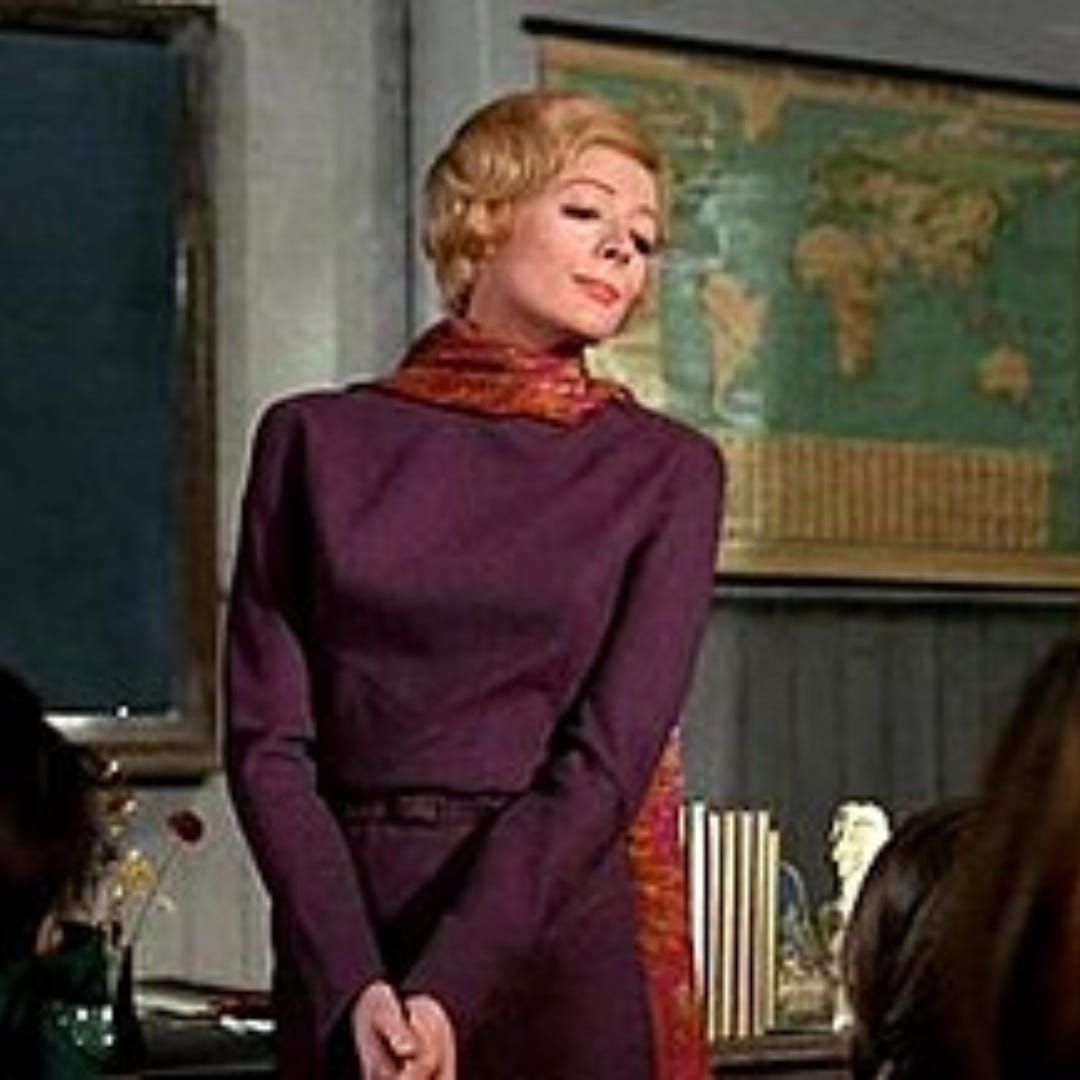REVIEW: The Prime of Miss Jean Brodie by Muriel Spark
💋contains spoilers and the blatant romanticisation of nasty female characters💋
This review was written before the tragic passing of Dame Maggie Smith (1934-2024).
May she rest in peace.
Like many other books I read in my first year of university, The Prime of Miss Jean Brodie makes me feel like summer is on the horizon. I opened the book and was engulfed with visions of lying on the spare bed in my twinshare room (at this point in the year, my roommate had found herself pregnant and vanished into the night, and thus I inherited the entire room), sunshine pouring through the window and my hallmates sunbathing in the garden outside. At any moment, we might make for the beach or the local botanical, or be called away on some grand and ill-advised first year adventure.
All of this to say, I approached my reread of The Prime of Miss Jean Brodie with a certain indulgent nostalgia. My memories of this book were vague - I was pretty sure it included a dubious, Lolita-esque affair. I knew Miss Brodie turns out to be a fascist. I knew some of the girls die. It's not good. And yet, I can't bring myself to hate the book, or the titular character. I love the tropes too much; the group of young women, the glamour, the literature and art, the private school, the elegant and urbane Miss Brodie. Women's rights and women's wrongs and so on.
I also love the idea that I'm a good ten years away from my prime of life, falling somewhere between Miss Brodie and the girls of the Brodie set. Either way it's a romanticisation: I'm still too freckled and gauche to be the former, and when I try to cast myself in the Brodie set, wondering what I'd be 'famous' for (although I'd love to say I'd be famous as the witty, shrewd narrator of the group or for having a chic bob) the rather unenjoyable truth is that I probably would have been famous for stealing other people's lunches or wearing coke bottle lenses.
Ultimately, I struggle to form a strong opinion of The Prime of Miss Jean Brodie. I love women who are bright, spiteful, elegant, and critical, and most women within the text can be sorted into one or other of these categories. Jean Brodie herself, narcissistic and refined. Miss Mackay, steadfast and single-minded in her mission to spare the school from the Brodie influence. Miss Lockhart, who could “blow up the school with her jar of gunpowder and would never dream of doing so.” Rose, Jenny, Mary, Eunice and Monica, petty and famous and caricatured in their youth. And Sandy. Shrewd, insightful, lost in conversation with some imagined figure of history or fiction. My memory of the book failed to do justice to her agency, particularly in regards to her affair with an older teacher:
By the end of the year it happened that she had quite lost interest in the man himself, but was deeply absorbed in his mind, from which she extracted, among other things, his religion as a pith from a husk. Her mind was as full of his religion as a night sky is full of things visible and invisible. She left the man and took his religion and became a nun in the course of time.
There is an undeniable cruelty to the cast, each out to undermine or mold the others. As the titular character declares, “Give me a girl at an impressionable age, and she is mine for life.” But somehow this just makes the book an indulgent read - there’s nothing so blissfully cathartic as a nasty woman.
The fascism wasn’t good though.
B.
Continue Reading:








your review is so well-written and witty! adding the book to my reading list right now. thank you💚